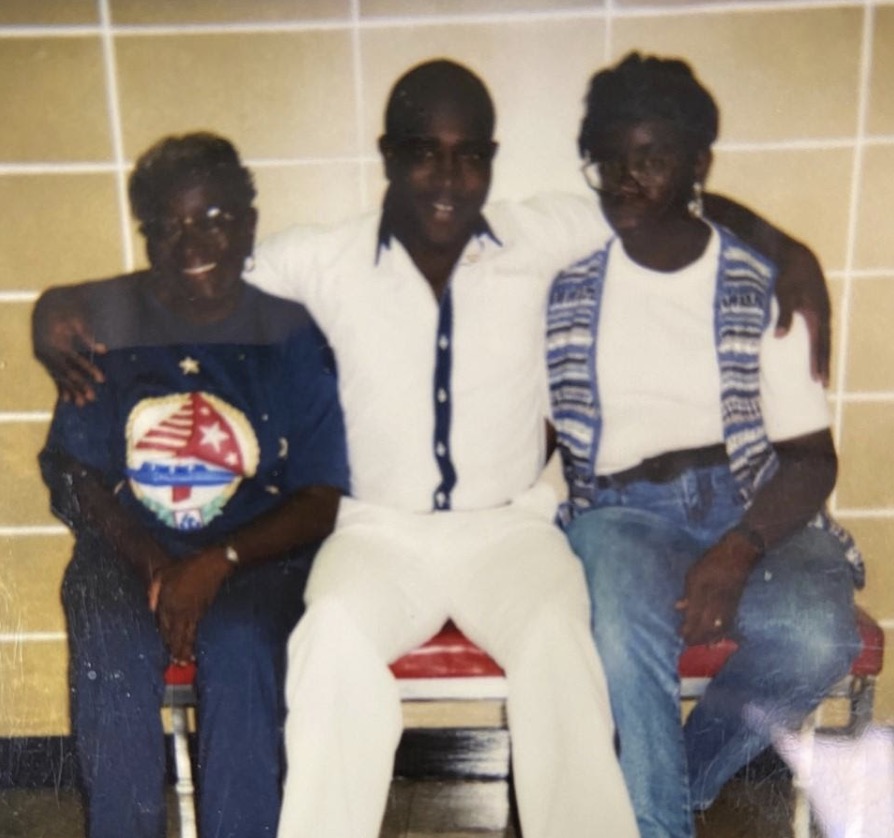Keith “Bo” Tharpe: Sentenced to Death by a Racist Juror
Bo Tharpe was sentenced to death in Jones County for the 1990 murder of his sister-in-law Jacqueline Freeman. Although the evidence established his guilt, the reliability and fairness of his death sentence was tainted by the disturbing racist beliefs held by one of his jurors.
In post-conviction proceedings, Georgia Resource Center staff interviewed a juror who served on the case, Barney Gattie. Mr. Gattie candidly discussed the crime and his service on the jury in virulently racist terms and indicated that his views on race impacted his decision to impose a death sentence against Mr. Tharpe. Among his troubling remarks, Mr. Gattie referred to Mr. Tharpe using the n-word, and said that he was unsure if “black people have souls” and that he believed Mr. Tharpe should receive the death sentence because he “wasn’t in the ‘good black folks’ category.” Despite this clear evidence of racial bias, the state and federal courts refused to consider the claim due to procedural barriers.

Following the conclusion of federal habeas proceedings, Mr. Tharpe’s execution was set for September 10, 2017. Late on the night Mr. Tharpe was scheduled to be executed, the U.S. Supreme Court stayed the execution to consider the case. The Court later ordered the U.S. Court of Appeals for the 11th Circuit to reconsider whether the racial bias claim could surmount the procedural hurdles the lower courts had imposed. In the proceedings that followed, however, the 11th Circuit again refused to review the claim. When Mr. Tharpe requested review of this ruling in the U.S. Supreme Court, it declined to hear his case. Justice Sonia Sotomayor respected the Court’s decision, but, in a separate statement, lamented that the courts’ hands were tied by procedural rules. She found the evidence of juror racial bias “truly striking.” She expounded, “These racist sentiments, expressed by a juror entrusted with a vote over Tharpe’s fate, suggest an appalling risk that racial bias swayed Tharpe’s sentencing.”
“I am profoundly troubled by the facts of this case.”
U.S. Supreme Court Justice Sonya Sotomayor
During his years on death row, Mr. Tharpe touched many lives. He spent his time in prison working to become a better person and finding positive ways to contribute to the world around him. He began to pursue his faith more intentionally and became a deeply religious man. On death row, he participated in Governor Nathan Deal’s religious counseling program administered through the Department of Corrections.
Mr. Tharpe suffered from severe drug addiction in the years leading up to the tragic death of Ms. Freeman. But the Bo Tharpe before and after those years of addiction was drastically different—he was a man who was kind, loyal, and loved to laugh. Mr. Tharpe had very strong connections with his family and friends, and he put a lot of effort into rekindling and maintaining those connections after he went to prison. Mr. Tharpe’s kind personality also helped him to develop strong relationships with guards and with other people on the row, and he was well-respected by prison staff. In 2019, as he was again approaching the possibility of a new execution date, Mr. Tharpe was diagnosed with terminal liver cancer, and on January 24, 2020, he passed away.
At his funeral, Georgia Resource Center attorney Cory Isaacson described her relationship with Mr. Tharpe and the impact he made on her life and the lives of others. She said, “People grow, people change, people are complex and complicated — people are people. Bo made these simple facts so completely obvious to everyone who knew him. Through it all, Bo’s humanity shined bright for all to see.”
